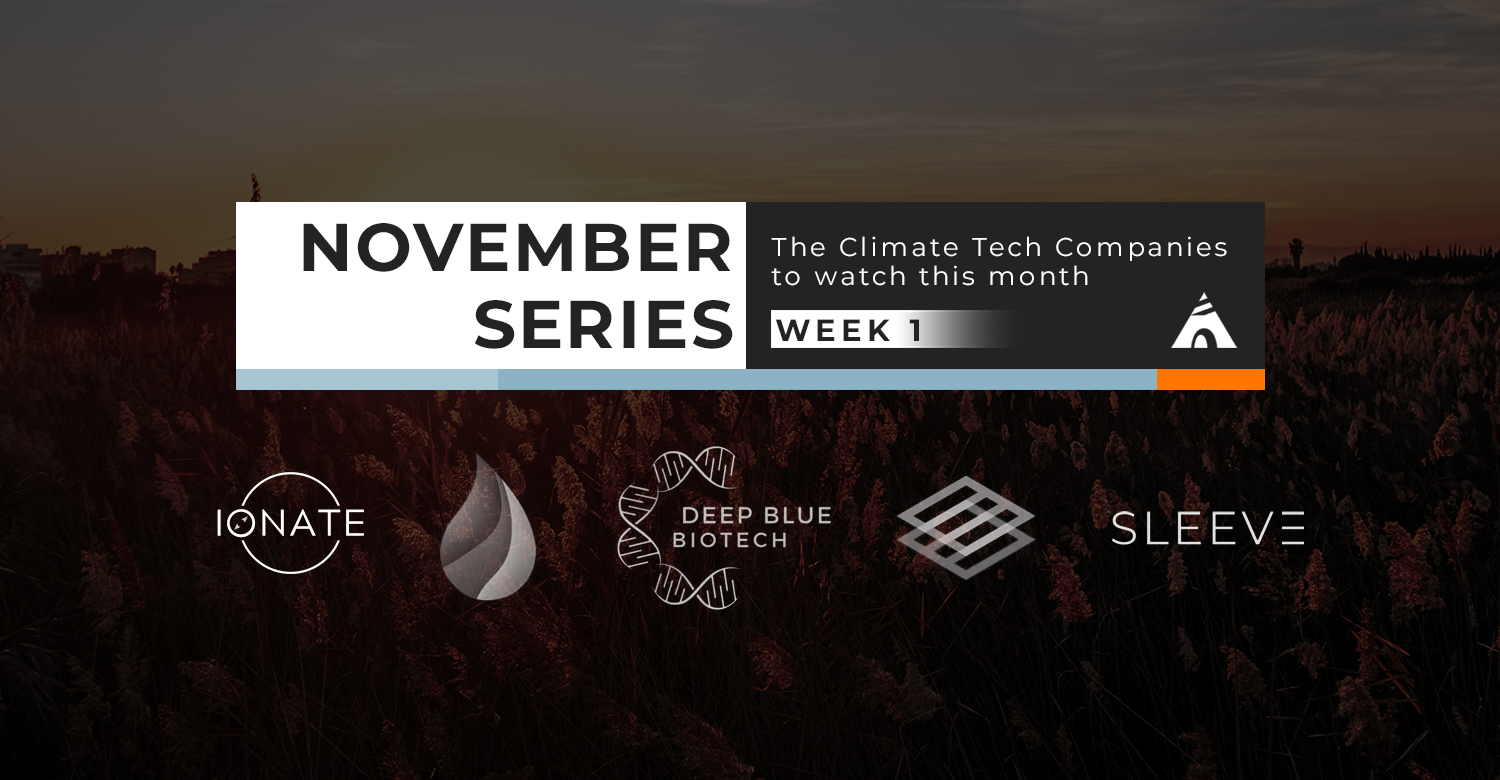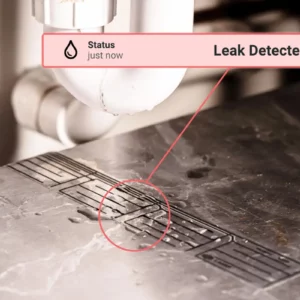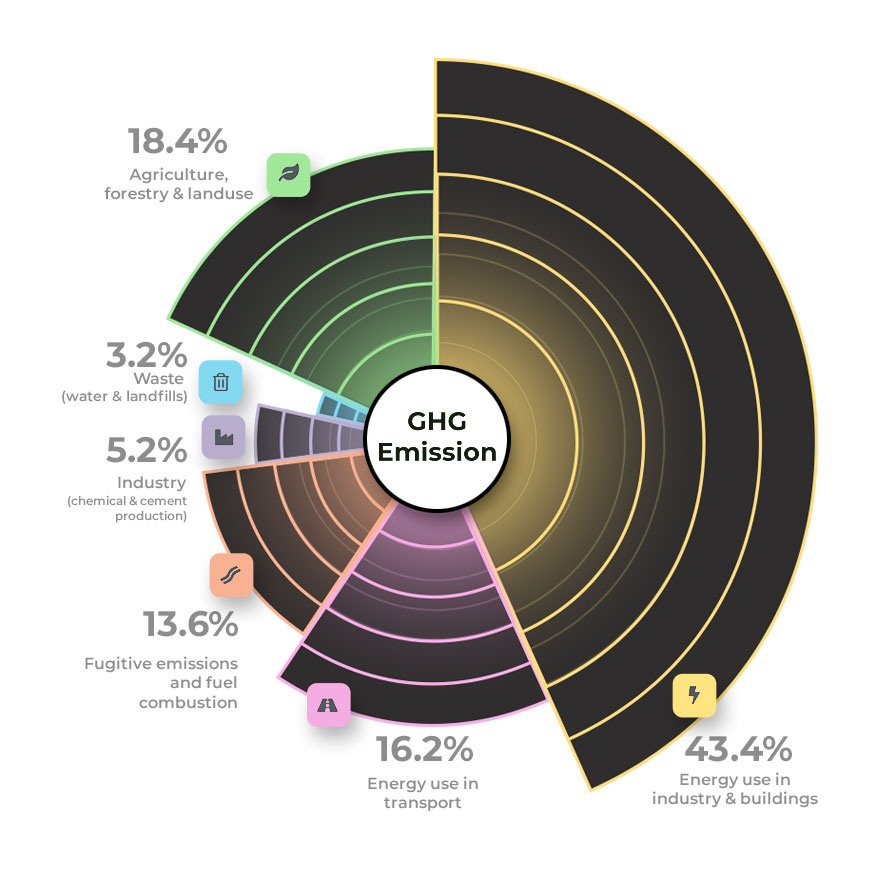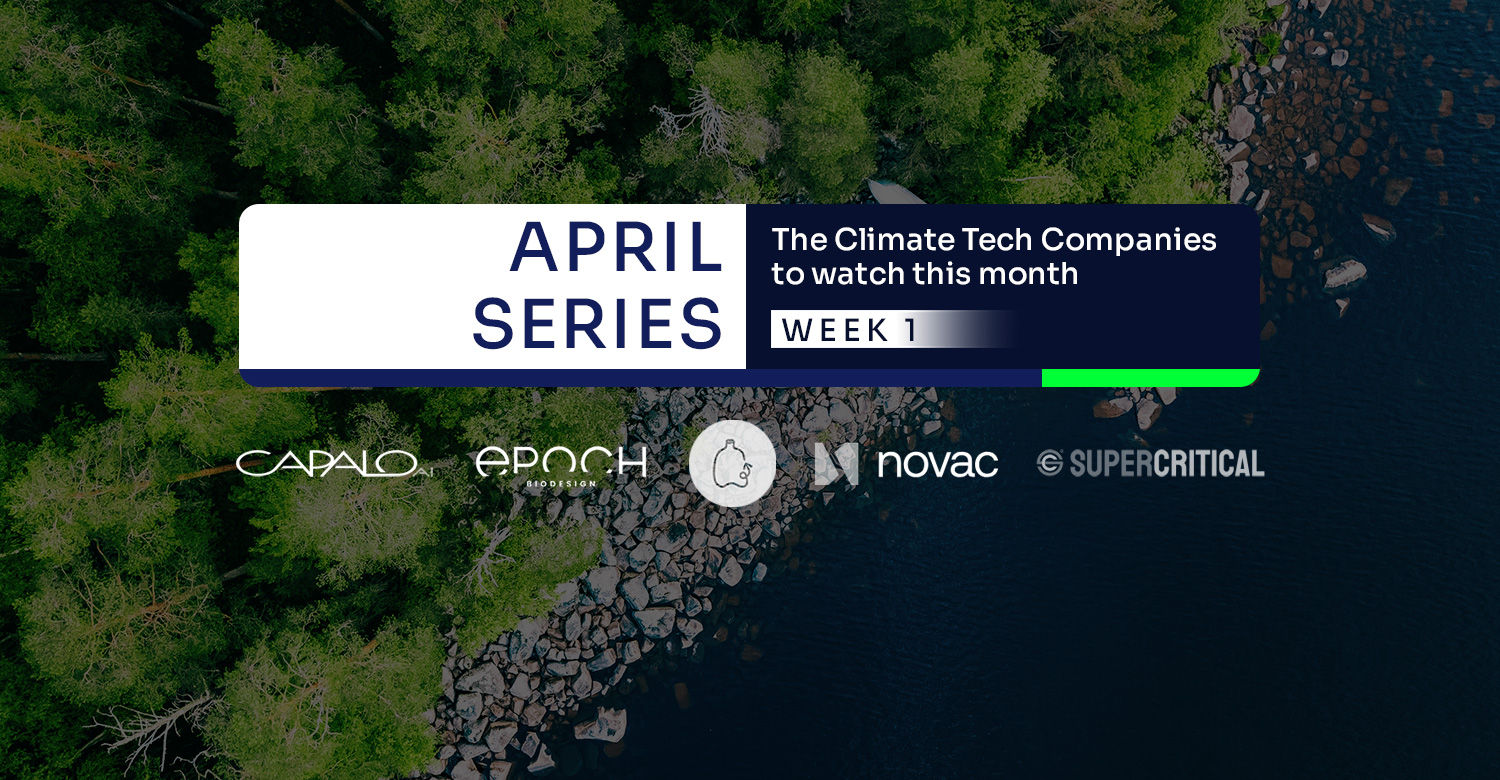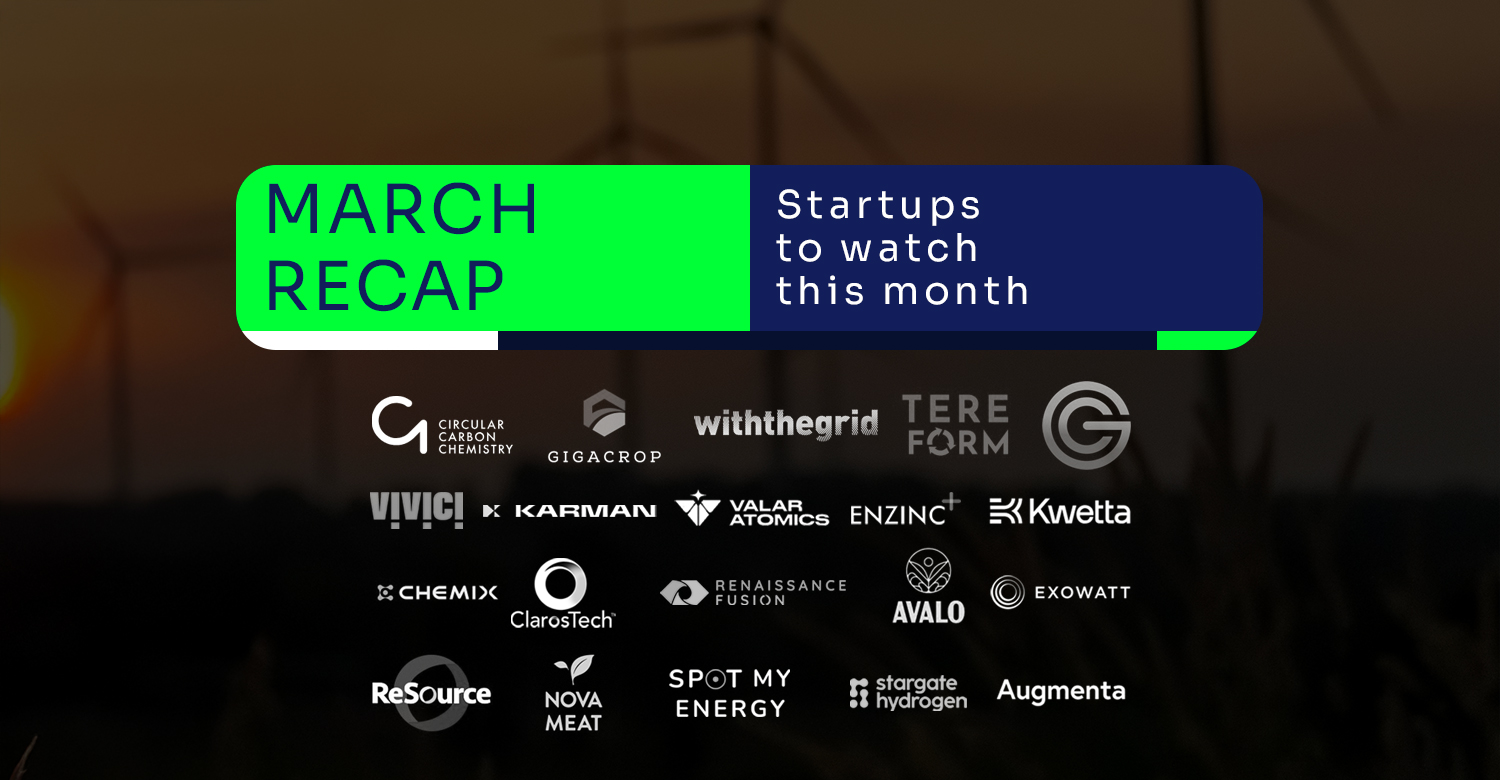November Week 1, 2023: In this weekly series, we highlight 5 climate tech startups to watch by featuring the incredible startups, companies, or projects that are leading the fight against the climate crisis.
Each month, we add these startups to our running list, which we have categorized based on fuel emission sector data from the most detailed, recent data SBC could identify from the World Resource Institute in 2016.
This initiative from Startup Basecamp aims to support founders by giving them access to networking and exposure opportunities that help them to scale and finance their climate tech solutions.
Do not hesitate to join our collective movement by requesting your membership.
With care,
Guillaume and the SBC TEAM
Waste (water & landfills)
Founded: 2021 – Paris, FR
Founders: Bernard Yong and Stephane Courtioux
Elevator Pitch: Sleeve is the innovative operating system that is reinventing the fashion industry’s production cycle. As trends rapidly evolve, Sleeve enables brands and factories to meet the fast-paced demand with precision and agility. By providing an all-encompassing platform that streamlines the journey from design to production and returns, Sleeve empowers fashion players to not only keep up with the market but to set the pace, ensuring they stay at the forefront of the industry.
Problem they solve: The fashion industry is notorious for its inefficiencies, with overproduction and waste being significant challenges. Brands often struggle to match production with the ever-changing consumer demands, leading to overstock and missed opportunities for personalization. Sleeve addresses these issues by offering a unified platform that connects and automates the entire production chain. This allows for on-demand production, minimizing waste, reducing surplus inventory, and enabling the creation of personalized products, thereby addressing the industry’s need for greater efficiency and customization.
Impact: Sleeve’s on-demand production model stands as a testament to sustainable fashion. By enabling brands and factories to produce only what is needed, the platform drastically cuts down on the waste and environmental degradation traditionally associated with mass production. With Sleeve, the reduction in overstock leads to a decrease in resource consumption and a smaller carbon footprint. Additionally, by facilitating the production of personalized items, Sleeve supports the shift towards a more circular fashion economy, where the lifespan of garments is extended and their environmental impact is significantly reduced.
Stage: Pre-Seed.
Interested in Sleeve?
To learn more about their technology or get in touch, see here.
Energy use in Transport
Founded: 2021 – Sandefjord, NORW
Founders: Steinar Kostøl and Håkon Skjerstad
Elevator Pitch: Azane Fuel Solutions is revolutionizing maritime fueling through their pioneering small-scale ammonia bunkering technology.
Problem they solve: Current fuel solutions are carbon-intensive, and alternatives like hydrogen pose significant storage and distribution challenges. Azane Fuel Solutions addresses these issues by developing an ammonia fuel bunkering network, harnessing ammonia’s higher energy density, easier handling, and existing global trade infrastructure to set a new standard in maritime fuel.
Impact: Ammonia production from renewable energy sources is inherently carbon-free, aligning with stringent emissions targets and reducing the shipping industry’s carbon footprint.
Stage: Pre-Seed.
Interested in Azane Fuel Solutions?
If you are interested in learning more, see here.
Cross-cutting enablers
Founded: 2023 – London, UK
Founders: Manuel Rios Krauss , Tim Corcoran and Andrej Ondracka
Elevator Pitch: By producing high-value, sustainable chemicals that supplant their fossil fuel-derived counterparts, they offer a cost-effective solution that’s poised to transform key sectors such as pharmaceuticals, beauty, and personal care, paving the way for widespread market adoption and enhanced carbon mitigation.
Problem they solve: The chemical industry is locked in a dependency on fossil fuels, sourcing high-value chemicals that are carbon-intensive and economically challenging to replace with greener alternatives. Deep Blue BioTech tackles this head-on with their Cyanobacteria technology platform, which overcomes previous cost barriers, offering a viable, scalable solution.
Impact: Deep Blue BioTech’s technology platform is not just an incremental improvement but a transformative leap in reducing the carbon footprint of the chemical industry. As their biologically-derived chemicals replace those traditionally obtained from fossil fuels, this innovation will initially make waves in the Pharma, Beauty, and Personal Care industries. In time, it promises to extend its reach, drastically reducing greenhouse gas emissions on a global scale and multiplying the impact of carbon mitigation efforts across diverse markets.
Stage: Early Stage.
Want to learn more about Deep Blue Biotech?
To learn more about their technology or get in touch see here.
Energy use in Industry and Buildings
Founded: 2019 – London, UK
Founders: Matthew Williams, Luca Mezossy-Dona and Roberto Ricci
Elevator Pitch: Ionate is set to revolutionize the energy sector with its Hybrid Intelligent Transformers (HIT). These advanced devices provide critical infrastructure stakeholders with unparalleled control and real-time data insights, vital for navigating the complexities of today’s dynamic power systems. Ionate’s HITs go beyond traditional capabilities, offering comprehensive monitoring, dynamic voltage regulation, power factor correction, and harmonics control, laying the groundwork for a smarter, more resilient grid.
Problem they solve: As electricity grids become increasingly complex with the integration of renewable energy sources, intermittent supply patterns, and evolving demand profiles, power system operators are challenged with maintaining grid stability and efficiency. Ionate addresses these challenges with their HIT technology, which offers enhanced power flow control and detailed system monitoring, enabling operators to adapt to fluctuations and maintain reliable, high-quality power supply.
Impact: Ionate’s technology paves the way for a cleaner energy future. By optimizing power systems for efficiency and supporting the integration of renewable energy, HIT devices reduce energy waste and mitigate the environmental footprint of power distribution networks. A network of these intelligent transformers, managed by Ionate’s digital platform, could significantly enhance the grid’s ability to incorporate sustainable energy sources, leading to substantial reductions in carbon emissions and fostering a more sustainable energy landscape.
Stage: Seed.
Interested in Ionate?
To learn more about this company, see here.
Cross-cutting enablers
Founded: 2021 – London, UK
Founders: Matt Johnson, Bibi Nelson and Isabel Lizardi Vilá
Elevator Pitch: LAIIER is revolutionizing building management with its innovative, wireless printed sensors that are as simple to install as applying tape. These cutting-edge sensors are transforming the way facilities managers, property insurers, and building developers monitor and maintain their spaces, offering real-time insights into leak detection, occupancy, and more. With LAIIER’s technology, creating sustainable, efficient, and secure environments is not just a vision—it’s a practical reality.
Problem they solve: In building management, the ability to quickly detect issues like leaks or monitor occupancy is crucial for maintaining safety, efficiency, and sustainability. However, integrating such smart technologies into existing structures has often been cumbersome and costly. LAIIER tackles this challenge head-on, offering easy-to-install and scalable sensor solutions that can be seamlessly incorporated into both new and old buildings. This technology not only enhances building maintenance but also significantly reduces waste, pollution, and unexpected maintenance costs.
Impact: LAIIER’s sensor technology has a profound environmental impact by promoting sustainable building operations. Through early detection of leaks and efficient occupancy management, LAIIER’s sensors help to significantly reduce water waste and energy consumption. By enabling smart and responsive building environments, LAIIER not only contributes to the safety and comfort of occupants but also aids in the reduction of the carbon footprint associated with building management and maintenance. Their commitment to easy integration means that even older buildings can become part of a more energy-conscious and environmentally friendly future.
Stage: Pre-Seed.
Interested in LAIIER?
If you are interested in learning more, see here.
Do you know of other startups we should include in our Startups to Watch Series? Submit to our list!
How do these startups fit in with all the others we have looked at?
Check out our running list of the 400+ climate tech startups to watch we have featured.
